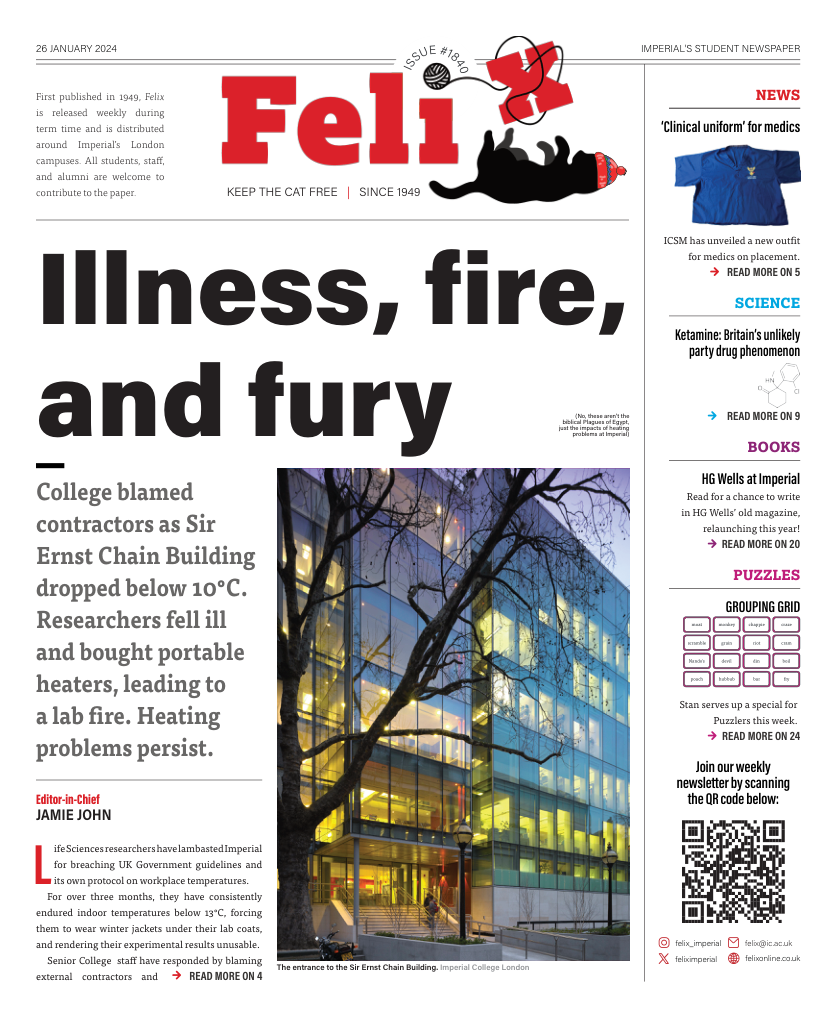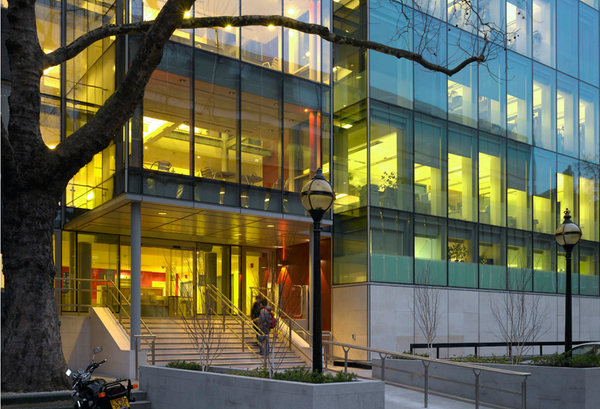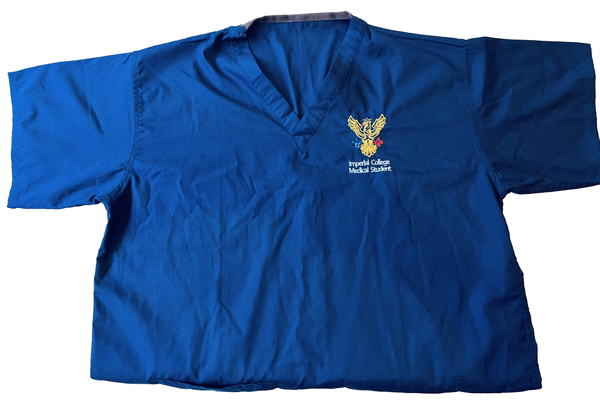Quarter-final University Challenge win for Imperial
The team stood up to its first real test this week.

Imperial recorded its third successive victory on University Challenge this week. In the first real test of their mettle, Haddad, Jones, Lee and Debnath beat Sheffield 195-160. They will proceed to the semi-finals of the competition if they win their next match.
The team came into the game having breezed past Oxford University’s Balliol and Lincoln colleges, trouncing both by a margin of over 100 points. They confounded those teams with their speed, beating them to the buzzer and correctly answering the bonus questions that followed.
Imperial started strongly against Sheffield this week, but with the score at 50-15, their opponents found a way back into the match. Sheffield’s Matthew Nail pounced on two incorrect answers by Imperial, rewarding his team with two consecutive bonus rounds that they used to claw the game back to 50-45.
Answering a third starter question correctly, Nail gave his team another bonus round, and Imperial found themselves behind for the first time this year. Former Indian space-agency engineer Sourajit Debnath kickstarted the College’s rally, correctly answering a question on fluid flow, Immanuel Kant, and topological spaces.
Sheffield remained hot on the Imperial’s heels for the remainder of the game, but never quite managed a comeback, and the game ended with them 35 points behind.
Asked to rate their chances of making it into the semi-finals, Imperial’s team sounded cautiously optimistic.
“Every team could slip up at any moment,” Justin Lee told the College’s media team. “But we have hope.”
“I’d say we stand a good chance,” said team captain Suraiya Haddad. “We’ve certainly been inspired by previous successes, so let’s see.”
Test yourself
Same drill as last time, for those of you who read our article in Issue 1838. Imperial’s team got all of the following questions (and more!) correct on their way to beating Sheffield. How well can you do?
1. What eight-letter word has all the following meanings?: In engineering, a machine element used to split or merge fluid flow; in the philosophy of Immanuel Kant, the unorganised content of the phenomenal world; and in mathematics, a topological space that is locally Euclidean.
2. Landing in 1600 on the Dutch ship Liefde, the ship’s pilot William Adams became the first English person to set foot in which country? His involvement in local politics and rivalry with the Portugues inspired a historical novel by James Clavell.
3. Described as ‘fecundo capitao’ or ‘eloquent captain’, which historical figure is the principle narrator of the Portuguese epic poem, Os Lusíadas or The Luciads, published in Lisbon in 1572?
4. Which young warrior hero of the Kalevala gives his name to a suite of four tone poems by Jean Sibelius, three of which are based on his legendary adventures? The other is The Swan of Tuonela, often performed separately.

Answers
1. Manifold, 2.Japan, 3. Vasco da Gama, 4. Lemminkäinen







